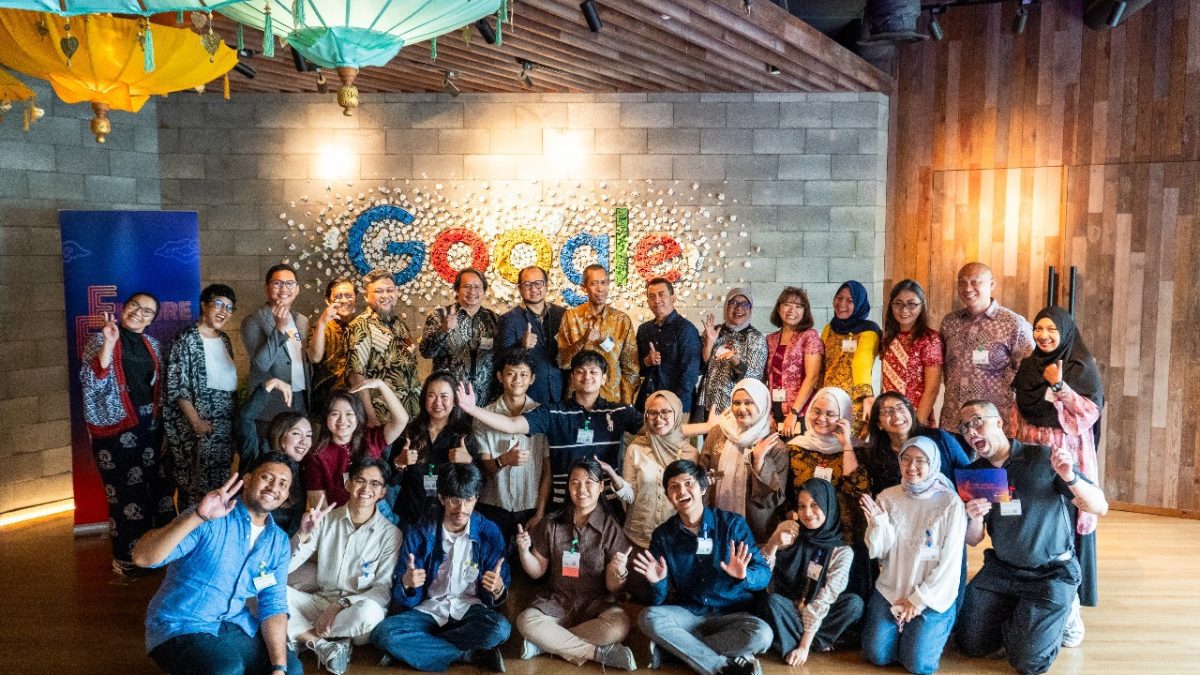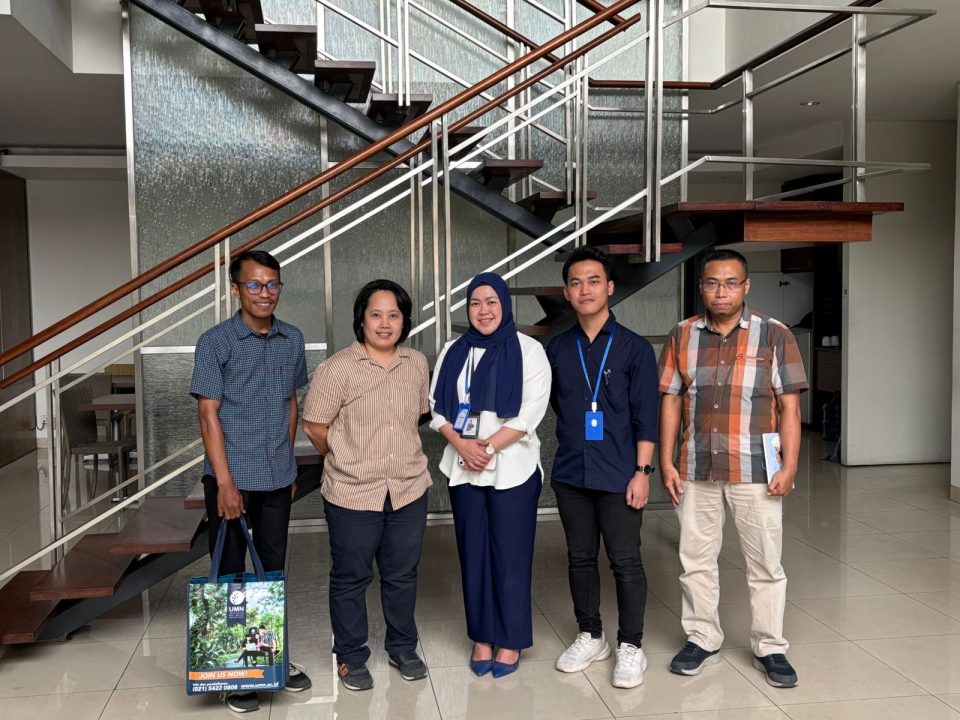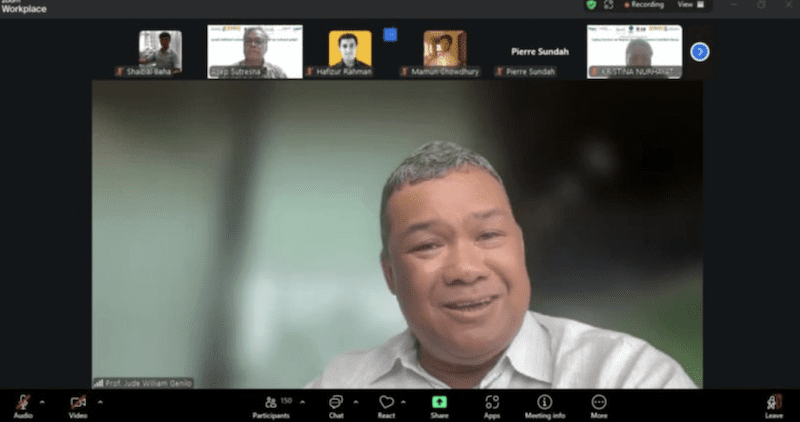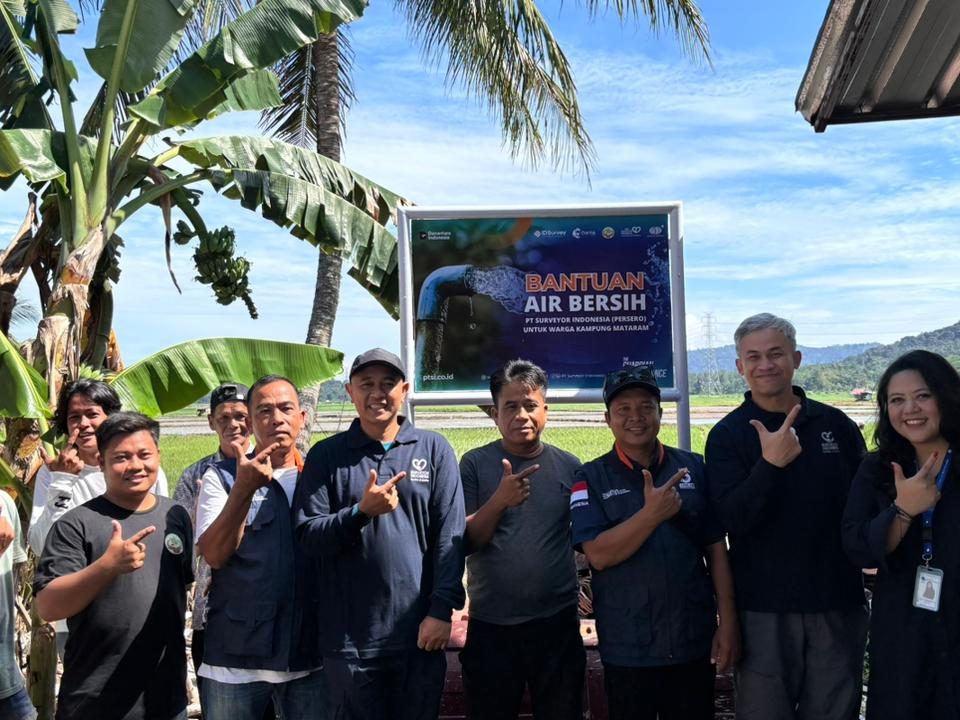
UMN Rector Raises Issues of AI and Sustainability at The IHCB Summit 2025
September 12, 2025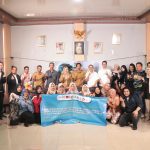
UMN Encourages Cirarab Village Community Through Training and Digital Promotion Via The PKM Dikti Grant
September 26, 2025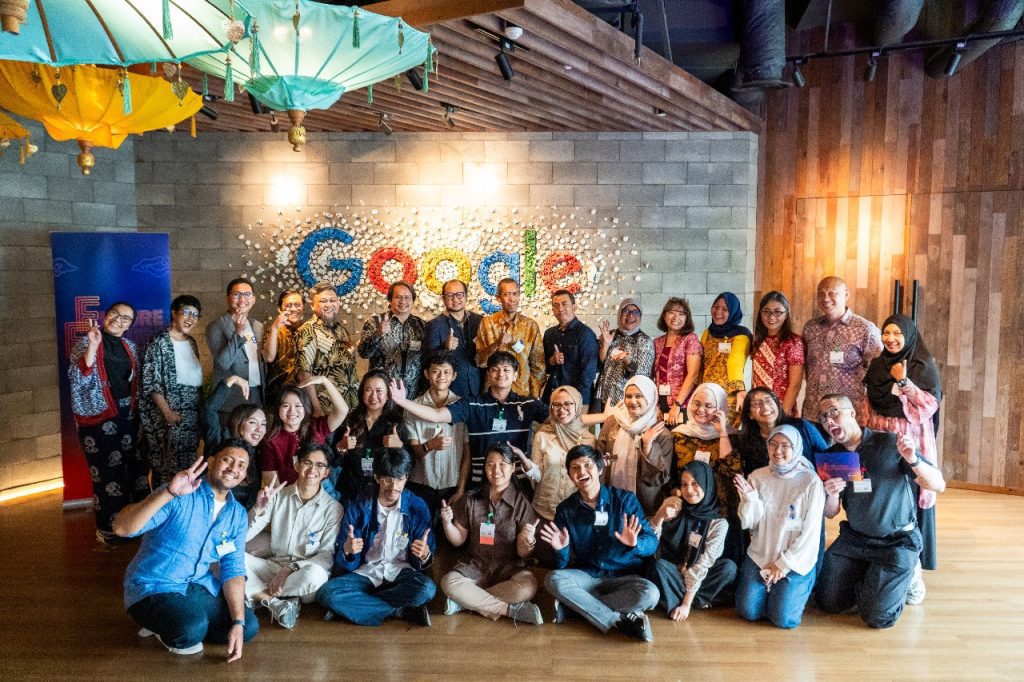
Doc. Irwan Fakhruddin
September 24, 2025, in Jakarta, Indonesia
A new report called “The Youth Voices on the Future of AI in Indonesia” has come out. It puts together what was learned in a series of workshops for college students about the future of artificial intelligence (AI). Love Frankie and Think Policy worked together on the “Future Feature” program, which got students from Universitas Indonesia (UI), Bina Nusantara University (BINUS), and Universitas Multimedia Nusantara (UMN) talking with a variety of people, such as government officials and civil society groups. The Google Indonesia Office was the place for the event.
Important Things from the Workshop and What Students Learned
The report, which is a summary of the workshops for executives, shows that the students who took part, who were between the ages of 18 and 21, were cautious but hopeful about AI. At first, they were unsure about using AI tools; some were excited, and others were cautious. However, after the workshops, they were much more confident in their ability to use them. Most of the students had used AI tools before; 92% said they had used ChatGPT, and 72% said they had used Gemini.
Most students think of AI as a “productivity tool” or “second brain” that can help with things like coding, research, translation, and business analysis. Fifty-three percent of students thought of AI mostly as a way to get more done, while only eight percent thought of it as a job threat. This goes along with the fact that 59% of students think AI will change jobs instead of getting rid of them. Students, on the other hand, stressed that AI can’t replace human skills like judgment, creativity, and emotional nuance.
Suggestions for Policy and Governance
The report says that young people in Indonesia are not only worried about the moral issues surrounding AI, but they also want to help run it. Students’ main worries are a lack of regulation (47%) and a lack of public awareness (35%). In response, they have made a number of important suggestions for policymakers:
- Make AI Governance and Regulation Stronger: Students asked for clear, human-centered national AI rules that cover privacy, copyright, transparency, and accountability. They also said that a cross-ministerial AI ethics oversight body should be set up and that the country should follow global best practices.
- Improve AI Education and Digital Literacy: Students suggested adding AI ethics to school curricula and training teachers to be “AI literacy champions” because they saw the need for a more informed public. They also stressed the need for public awareness campaigns across the country to explain the pros and cons of AI.
- Create an AI ecosystem that is fair and open to everyone: Suggestions were made to put money into digital infrastructure, especially in 3T (disadvantaged, frontier, and outermost) areas, and to make AI tools more fair and cheap for students and artists.
- Actively Include Young People in Making Decisions: A huge 98% of students think that young people should have a bigger say in AI policy. They suggested setting up official ways for young people to get involved and making them co-creators of AI policy. For example, they suggested youth internships in regulatory bodies and the creation of Youth AI Councils.
This report is an important guide for stakeholders to work with the next generation of digital leaders and deal with the problems and opportunities that AI brings to Indonesia.
Highlights of the event and delegates
The AI Policy Roundtable Discussion was the last event of the “Future Feature” program. It took place on Thursday, September 18, 2025, from 8:30 a.m. to 12:45 p.m. WIB at the Google Indonesia Office on the 45th floor of Pacific Century Place Tower in Jakarta Selatan. The event brought together a wide range of people, such as students and professors from Universitas Indonesia, Bina Nusantara University, and Universitas Multimedia Nusantara.
Jesslyn Tjandra Kristanto, Rafaela Janice Pingkan Assa, and Lukas Chriswahyudi were some of the UMN students who were chosen to be Youth Ambassadors. Irwan Fakhruddin, the Deputy Head of the Science Communication Department at Universitas Multimedia Nusantara, went with them.
There were also government officials there from the Ministry of Communication and Digital Affairs, the Ministry of Higher Education, Science, and Technology, and the Coordinating Ministry for Human Development and Cultural Affairs. ICT Watch and Japelidi were two groups that spoke for civil society.
The event’s results and suggestions show that the students are dedicated to building a future where AI is used for national development in a way that is fair and shared.
Contact for the Media:
Irwan Fakhruddin
Kuliah di Jakarta untuk jurusan program studi Informatika| Sistem Informasi | Teknik Komputer | Teknik Elektro | Teknik Fisika | Akuntansi | Manajemen| Komunikasi Strategis | Jurnalistik | Desain Komunikasi Visual | Film dan Animasi | Arsitektur | D3 Perhotelan , di Universitas Multimedia Nusantara.

